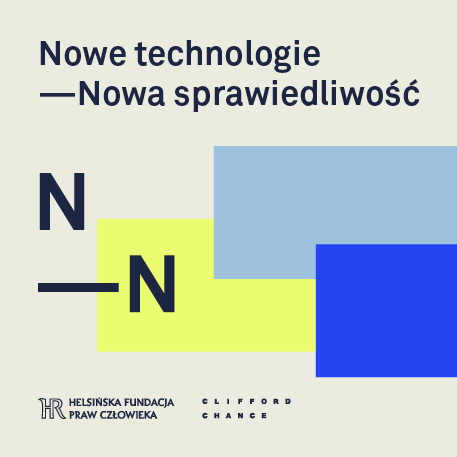
“New” trials in “old” courts, or how the pandemic changes court sittings
The COVID-19 pandemic has amplified the long-standing calls for more extensive digitisation of the justice system. “E-trials” provide an example of the use of new technologies in the courts. They can not only become a solution to such problems as access to courts or lengthy court proceedings but can also help the judiciary to deal with emergencies, say, a pandemic that prevents direct interpersonal contacts.
E-trial – a temporary measure or a new idea for justice?
The Helsinki Foundation for Human Rights has decided to launch a survey on the extent of the Polish courts’ use of remote proceedings since March last year.
As part of the survey, we tried to answer the following questions:
- How often do courts make use of the possibility to hold an e-trial?
- What tool do they use to conduct them?
- Do litigants complain about technical problems resulting from their participation in remote proceedings?
- Are e-trials still open to the public?
- Are judges trained to handle this new form of proceedings?
In total, the Foundation received replies from 65 courts (11 courts of appeal, 45 regional and 9 district courts).
Growing popularity
Penitentiary courts, in which e-hearings have been gaining in popularity since April 2020, are most keen to deal with cases remotely. The numbers are quite impressive – for example, the Penitentiary Division of the Regional Court in Świdnica remotely delt with 1075 cases, whereas the Regional Court in Bydgoszcz conducted 2247 cases remotely. The situation is slightly different for other divisions. As a rule, as months go by, courts are increasingly more willing to conduct remote trials or hearings. For example, in Q3 and Q4 2020, 110 and 206 cases, respectively, were proceeded remotely by the Regional Court in Gdańsk, whereas in January 2021 alone the figure was as a high 188. However, let us not forget that for some courts these figures remained at a similar level throughout the whole surveyed period (e.g., the Regional Court in Warsaw’s Praga borough, the Regional Court in Nowy Sącz or the District Court for Warsaw’s Wola borough).
Remote sittings are also used more frequently in civil and commercial cases than, say, in criminal cases. Dr Marcin Ciemiński, Partner at Clifford Chance, points out that “court proceedings in commercial matters are increasingly becoming document-based proceedings. The impact of documentary evidence is increasing, and witness evidence is more frequently taken through written testimony. What is more, thanks to developments in technology, witnesses and experts can be interviewed more efficiently. Hence, nothing seems to stand in the way of more widespread use of remote trials in commercial cases. I do not have the slightest doubt that this would tangibly improve the handling of commercial matters, and my experience so far has been positive.”
The findings reveal a lack of uniformity in the approach to the remote conduct of trials and hearings, which results in significant differences between courts in many areas. “Such divergences may lead to de facto disparities in access to justice in different regions of Poland and in different courts (or even divisions of courts), which may raise questions concerning compliance with standards of human rights protection and generate a feeling of injustice”, commented Dr Marcin Szwed, HFHR lawyer.
There are substantial differences between courts of the same level (and sometimes even between those located in the same city) related to, among other things: the software used to conduct remote trials or hearings, technical facilities for the remote conduct of proceedings, the level of training received by judges and court personnel, and the number of cases dealt with remotely, which, to a certain extent, is a result of the above factors.
“We are particularly concerned by the fact that members of the public are not allowed to take part in remotely conducted trials in as many as 12 regional courts and two district courts that took part in our survey”, HFHR lawyer Krzysztof Jarzmus notes and adds: “The absence of specific provisions governing remote proceedings may not lead to violations of the general principle that trials are open to the public.”
A further but prudent step is needed…
According to the authors of the report, a comprehensive and interdisciplinary reflection on the way they are conducted is necessary to avoid wasting the potential of e-trials. A more proactive practical approach is also required, especially the provision of appropriate equipment and training for judges, court personnel and counsel.
The report was prepared as part of New Technologies – New Justice a joint project of the Helsinki Foundation for Human Rights and Clifford Chance. To find out more about the next outcomes of our work, please go here.
Download:


15.03.2021
 Cookies EN
Cookies EN